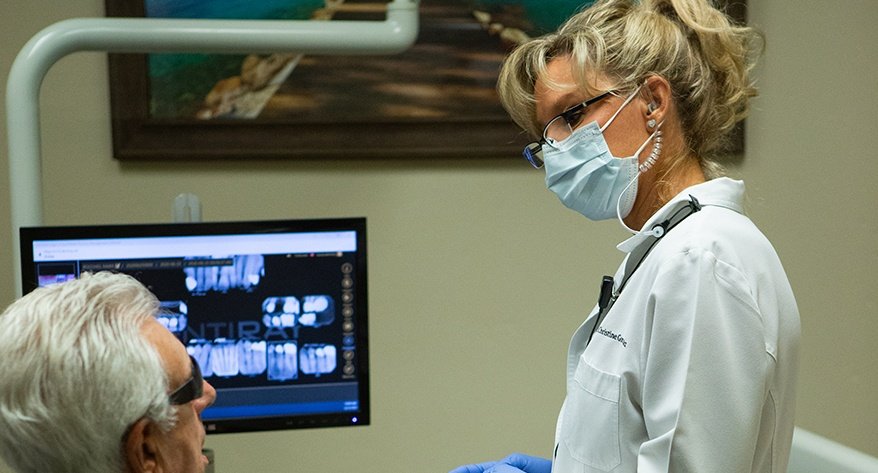In today’s world, a healthy and confident smile plays a crucial role in our self-esteem, appearance, and overall well-being. For individuals dealing with missing teeth, one of the most accessible and effective solutions is dentures. Dentistry for dentures has advanced significantly over the years, offering patients more natural-looking and comfortable options than ever before. This article explores what dentistry for dentures entails, the types of dentures available, the process of getting dentures, and tips for care and maintenance.
What is Dentistry for Dentures?
Dentistry for dentures refers to the specialized area of dental care that focuses on the diagnosis, treatment, and replacement of missing teeth using removable or fixed prosthetic devices known as dentures. This field combines aesthetics, functionality, and oral health principles to create personalized denture solutions that improve both the appearance and functionality of a patient’s mouth.
Dentists who provide denture services assess a patient’s oral health, jaw structure, and lifestyle to determine the most appropriate type of denture. With technological advances, modern dentures are now more comfortable, stable, and lifelike, helping patients eat, speak, and smile with ease.
Why Dentures Are Important
Missing teeth can have far-reaching consequences beyond appearance. They can lead to:
-
Difficulty chewing and speaking
-
Bone loss in the jaw
-
Shifting of remaining teeth
-
Changes in facial structure
-
Decreased self-confidence
Dentures help restore these lost functions and support facial muscles, giving patients a fuller, more youthful appearance. With the help of dentistry for dentures, people can regain a high quality of life and confidence in social and professional settings.
Types of Dentures
There are several types of dentures available through dentistry for dentures, each designed to meet different patient needs:
1. Complete Dentures
Also known as full dentures, complete dentures are used when all teeth are missing from either the upper or lower jaw. These dentures rest on the gums and are typically made from acrylic materials. They can be conventional or immediate:
-
Conventional Dentures are made after the teeth have been removed and the gum tissue has healed.
-
Immediate Dentures are placed immediately after tooth extraction, allowing patients to avoid going without teeth during the healing period.
2. Partial Dentures
Partial dentures are used when some natural teeth remain. They consist of replacement teeth attached to a pink or gum-colored plastic base, often connected by metal framework to hold them in place. Partial dentures help prevent the remaining natural teeth from shifting out of position.
3. Implant-Supported Dentures
A modern advancement in dentistry for dentures, implant-supported dentures offer increased stability and comfort. These dentures are anchored to dental implants surgically placed in the jawbone, making them less likely to shift or slip during eating or speaking. They provide better chewing efficiency and are ideal for patients seeking a long-term solution.
The Denture Process
The journey through dentistry for dentures usually involves several steps:
Step 1: Initial Consultation
During the first visit, a comprehensive examination is conducted, which includes X-rays, impressions, and a discussion of the patient’s needs and expectations.
Step 2: Treatment Planning
Based on the oral examination, the dentist will recommend the most suitable type of denture. They will also explain the treatment timeline, costs, and any necessary procedures such as tooth extractions or dental implants.
Step 3: Impressions and Measurements
Accurate impressions of the mouth are taken to ensure a perfect fit. Bite registrations and jaw measurements are also recorded to create dentures that function correctly.
Step 4: Trial Fitting
A wax model of the dentures may be created for a trial fitting. This helps adjust the shape, color, and fit before the final denture is fabricated.
Step 5: Final Denture Placement
Once the final dentures are ready, they are fitted, and any necessary adjustments are made for comfort and appearance.
Step 6: Follow-Up and Adjustments
After receiving dentures, patients may need a few follow-up visits for minor adjustments. It’s common to experience a short adaptation period as the mouth adjusts to the new appliance.
Denture Care and Maintenance
Proper care is essential to keep your dentures in good condition and to maintain oral health. Here are some top tips from experts in dentistry for dentures:
-
Clean your dentures daily. Brush them with a soft-bristle brush and denture cleaner to remove food and plaque.
-
Rinse after meals. This helps remove debris and prevent staining.
-
Soak dentures overnight. Most dentures need to remain moist to keep their shape. Use a mild denture-soaking solution unless advised otherwise.
-
Avoid hot water. Hot temperatures can warp dentures.
-
Handle with care. Dentures can break if dropped, so always handle them over a soft towel or sink filled with water.
-
Schedule regular dental visits. Even with dentures, regular check-ups are crucial to monitor oral health and ensure the proper fit of the denture.
Common Myths About Dentures
Despite their popularity, there are many misconceptions about dentistry for dentures:
Myth 1: Dentures are only for the elderly.
Truth: Dentures are for anyone who has lost multiple teeth, regardless of age.
Myth 2: Dentures last forever.
Truth: Dentures need to be replaced every 5–10 years as the shape of the mouth changes and wear occurs.
Myth 3: You can’t eat normal foods with dentures.
Truth: While there is an adjustment period, most people return to a normal diet with practice and the right fit.
Choosing the Right Dentist for Dentures
Choosing a qualified and compassionate dental professional is essential when considering dentistry for dentures. Look for a dentist with experience in prosthodontics, positive patient reviews, and a personalized approach to care. A good dentist will walk you through your options, explain the pros and cons, and ensure your dentures fit well and look natural.
Conclusion
Dentistry for dentures offers a life-changing solution for those suffering from tooth loss. With various denture options, cutting-edge technology, and personalized treatment plans, patients can restore their smile, improve functionality, and regain confidence. If you or a loved one is exploring tooth replacement solutions, consult a dental professional who specializes in dentures to learn more about your options.
A healthy, radiant smile is more achievable than ever—and with the right care, it can last a lifetime.





Leave a Reply